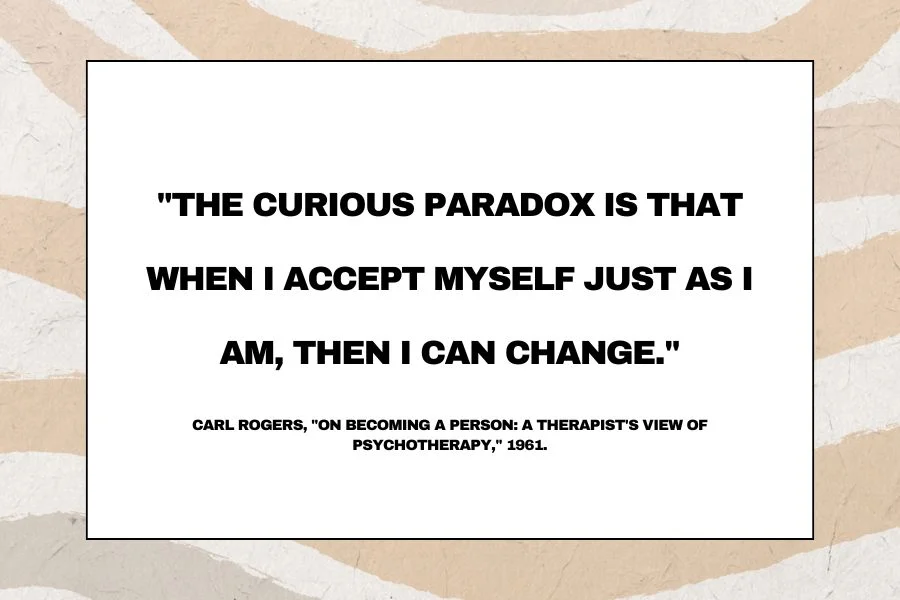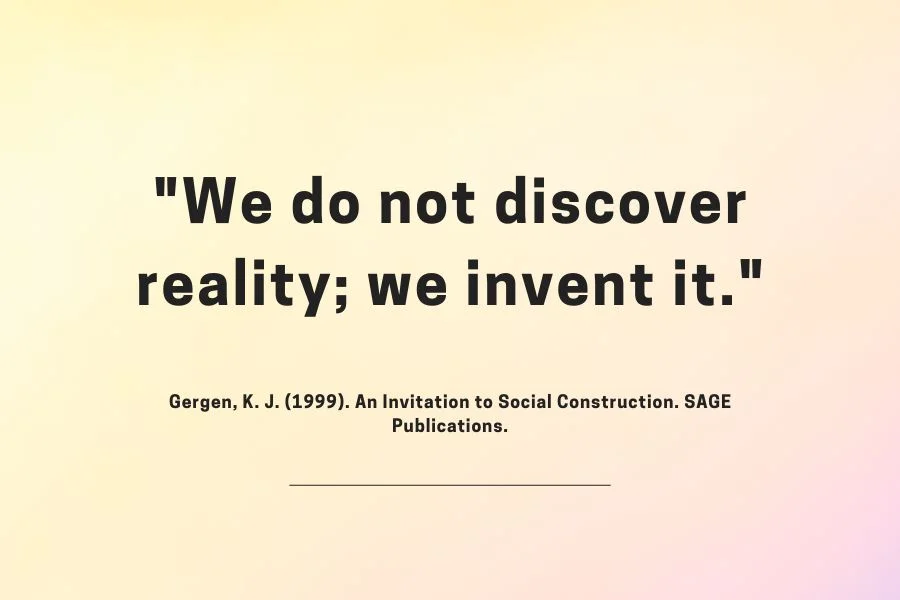Greetings to all who have arrived at my blog about the Schools of Thought in Psychology! As a practitioner within the mental health field, I am deeply devoted to assisting people as they traverse the profundity of psychology and comprehend how they can employ various theories in their daily lives. In this blog, I shall delve into significant Schools of Thought in Psychology and further study how each contributes to our comprehension of mental well-being.
Psychology is an area that has consistently been developing, boasting a long and varied background. From cognitive, behavioural, and psychoanalytic to humanistic psychology; biological, structuralism; functionalism; social constructionism as well as postmodernism – these numerous Schools of Thought in Psychology offer their distinctive insights into the complexity of the mind. In this blog, we will probe deeply into those different psychological perspectives to discover the actual range of psychological studies.
Table of Contents
10 Schools of Thought in Psychology
Structuralist School of Psychology

Structuralism is a school of thought that analyses the structure or elements inherent in conscious experience. Founded by Wilhelm Wundt, who is often credited with being the founder of psychology, Structuralists believed that mental activities could be broken down into their fundamental components. They examined similarly to how physical objects were studied. Furthermore, they presumed these base parts could be combined to generate more intricate structures.
Examining structuralism as a method of understanding psychological processes, researchers consider how different emotions are composed of distinct components. For instance, they may study how anger and sadness consist of feelings and sensations that manifest throughout certain parts of one’s body, changes in facial expressions, and considerations regarding what could have induced these states.
Through analyzing how all these pieces interact with each other, structuralists seek to gain insight into human nature while furthering comprehension of mental functioning. The majority of psychological research now takes a more holistic and comprehensive view when studying mental phenomena.
Structuralism was one of the first forms of psychological inquiry, though it has since been largely supplanted by other schools such as functionalism, social constructionism, Gestalt psychology, and postmodernism. Structuralists made some essential contributions to the field through their framework for understanding conscious experience via its parts; however, their approach needed to be developed further by subsequent models – most notably an appreciation for context dependence and subjectivity concerning interpretations of mental processes.
While structuralist methods are still employed occasionally (e.g.” language learning), contemporary psychological research typically adopts a more holistically oriented perspective while examining cognitive phenomena in depth.
Functionalist School of Psychology
Functionalism is a school of thought in psychology which emphasizes the investigation into mental processes and their regulation of behaviour, as opposed to examining the physical components of the brain. Originating from America during the late
19th century, William James’ works concerning psychology significantly impacted functionalism; he maintained that behaviour should be examined scientifically rather than through introspection. Like this, functionalism focuses on comprehending how humans think and act by analyzing how distinct functions are organized within their minds.
Rather than concentrating on individual elements, as structuralism did, functionalism opts for a holist approach that examines how these ingredients combine to create mental activities such as perception, learning, memory and problem-solving. It is contended by the functionalists that general laws govern this type of activity and can be discovered through rigorous investigation along with experimentation. Additionally, they maintain that behaviour is frequently shaped according to past experiences, an idea predominant in cognitive psychology today.
Functionalism was a pioneering school of thought in psychology which emphasized examining the internal functions and processes associated with psychological phenomena rather than simply describing them. To this end, they used introspection to study people’s conscious experiences when presented with specific tasks or stimuli. It enabled them to conclude how these feelings relate to underlying mental activities such as attention and memory retrieval.
Additionally, Functionalists utilized functional analysis while carrying out experiments regarding what components were essential for completing training successfully, ultimately allowing them greater insight into complex topics like language acquisition or problem- solving ability.
In summation, functionalism laid the groundwork for modern cognitive science by encouraging exploration within ourselves rather than just observation from without; it has been highly influential in increasing our understanding of human cognition and its practical applications today.
Gestalt School of Psychology

Gestalt Psychology is an intellectual school of thought that emerged in the early twentieth century, strongly impacted by theorists such as Max Wertheimer, Wolfgang Köhler and Kurt Koffka.
The primary focus for Gestalt Psychologists lies in comprehending how individuals perceive stimuli not merely as a compilation of distinct parts but instead as complete wholes. “The Gestalt” idea serves to be the most imperative element within this approach; it insinuates that distinguishable features can be arranged collectively so that they connote an entirely new whole with properties unlike those present among its constituents.
This concept has been implemented in many life aspects, from visual perception and problem-solving to social interaction. Gestalt psychologists believe that when we observe a scene or an image, our brains rapidly try searching for patterns or significant connections between what is seen; for instance, two eyes looking at one another can be easily recognized as belonging to a face even if none of its components (eyes nose mouth etc.) are visible in the picture itself.
Similarly, when attempting to solve a problem, our minds may unintentionally join together associated elements without any conscious effort: for example, in the case of searching for an item that has been misplaced at home, it can be beneficial if similar-looking items are grouped (e.g., keys) rather than going through every single object within the room randomly.
The concept of “the Gestalt” is also pertinent regarding how people interact with one a. Iner– in this context, too, there can exist meaningful connections between individuals or groups which are not evident merely from ideal behaviour alone.
To illustrate, two individuals who have never met before might discover they share many qualities upon first acquaintance; similarly, two nations which had previously held antagonistic views toward each other could become allies following talks and concessions regardless of their different backgrounds and ideologies.
Behaviorism

Behaviorism is a field of inquiry that concentrates on the observable behavior of people and creatures. Central to this area is the idea that behaviour is gained through experience, signifying it can be impacted by external elements like support as inward components, including convictions or sentiments. Via meticulous observation and experimentation, researchers have discovered a multitude of principles concerning learning and behaviour modification, which form the basis for this branch of psychology.
An important concept in behavioural psychology is operant conditioning, first proposed by B.F Skinner in 1938. According to theory, one learns when consequences are linked with particular behaviours- positive reinforcements (such as rewards) or negative reinforcements (for example, punishments).
Behavioural psychologists have had another substantial contribution with token economies, a system designed to reward desirable behaviour through tokens that can be exchanged for privileges or commodities within an environment such as the classroom. This approach has been utilized to address various psychological issues like phobias and addiction matters, including substance abuse disorders and gambling addictions, among other things.
Token Economies enable teachers to set up instructions expeditiously, thus eliminating extensive elucidations while still instructing students on proper behaviour patterns by providing them with an instantaneous response through token rewards or cancellation upon accomplishment or failure at particular activities.
Moreover, Behaviorism presents efficacious instruments for grasping human behaviour and creating effective methods for transforming it if needed – treating mental health issues such as anxiety disorders or aiding children to learn suitable social skills in school. By probing into each individual’s distinct inspirations behind their actions, Behavioral Psychologists strive to discover manners of generating unfading changes that would facilitate people to lead healthier lives.
Biological Perspectives
The Biological Perspective on Psychology examines the physiological components of emotion and behaviour, proposing that these factors determine one’s mental processes and emotional states.
This school of thought takes an evolutionary approach to explain why particular behaviours have been selected throughout human history as well as how our physical body can influence our psychological well-being; for example, it is possible to trace certain stress hormones back to occasions when a person experiences psychological distress or observe genetic makeup affecting predetermined personality traits.
The Biological perspective has been employed to explain various psychological issues and disorders, such as depression, addiction, schizophrenia, bipolar disorder, ADHD, OCD, anxiety disorders and more. Those who adhere to this school of thought may utilize techniques like neuroimaging or EEGs to explore the intricacies of our brains so they can offer treatments for these conditions.
Additionally, it is possible that animal models could be utilized in revealing further knowledge regarding human behaviour, which would not necessarily be able to obtain from studies carried out on humans solely.
In addition to offering to understand mental illness and abnormal behaviours, the biological viewpoint can also help us realize what makes each unique by allowing us discernment with regards towards those aspects which are decided biologically as opposed to those affected due to learning or personal experiences. Assembling information obtained through this type of psychology with other schools, such as Cognitive-Behavioural Psychology, will enable a more significant comprehension of human nature.
Psychoanalytic School of Psychology

Psychoanalytic theory is an area of psychology that explores the unconscious mind and how it affects our behaviour. Developed by Sigmund Freud in the late nineteenth century, psychoanalysis remains one of today’s most considerable influences in psychology.
The fundamental hypothesis behind psychoanalysis is that people possess two distinct levels of motivation: conscious and unconscious. Conscious motivations are directed through what we recognize or think we understand, while unconscious motives originate from concealed desires, fears, worries and remembrances, which may not even be known to us.
Sigmund Freud believed that the human mind was composed of 3 elements: the Id, Ego and Superego.
Id
- The Id is like a little child inside us.
- It wants instant gratification of our basic needs and desires.
- It operates on the pleasure principle, seeking pleasure and avoiding pain. The Ego: Our Rational Self
Ego
- The Ego is like the practical adult in our mind.
- It balances the demands of the Id and Superego.
- The Ego operates on the reality principle, considering the natural world and its consequences.
- It tries to find realistic and socially acceptable ways to fulfil our desires. The Superego: Our Moral Compass
Superego
- The Superego is like our internal parent or conscience.
- It holds the moral values and standards we learned from society and our parents.
- The Superego can make us feel guilty when we do something against our values.
- It aims for perfection and sets high standards for our behaviour.
Sigmund Freud believed that our unconscious minds exerted significant influence over our lives; he supposed many of our actions to result from these undetected powers. He perceived symptoms such as anxiety, depression, phobias, and other psychological difficulties as possibly having their bases in unresolved discord between conscious motivations (what we think) and unconsidered ones (what we feel).
Based on psychoanalytic theory, comprehending ourselves necessitates investigating aware and unaware incentives; this implies examining beneath the surface to uncover concealed impulses or feelings that can be dealt with therapeutically. Even though Freud’s approach has been criticized for lacking scientific evidence, it remains influential due to its focus on scrutinizing interior realms instead of external elements like environment or culture.
Humanistic School of Psychology

The Humanistic Approach in Psychology is an intriguing line of thought. Humanism
emphasizes that humans can reach their utmost possible state and become their ultimate version of selves. This view holds conviction in self-actualization, which entails attaining the highest perspective through individual growth and evolution. Furthermore, this concept incorporates peak experiences – instants filled with intense delight, amazement and astonishment encountered by people during times of transcendence or enlightenment.
Humanistic psychologists emphasize the development of healthy relationships with others, free from external influence. They maintain that all humans possess certain inherent qualities such as creativity, affection and an inclination to strive for success, provided they are given a chance. Moreover, peak experiences can be attained through creative activities like writing, painting or music; physical ones such as running or hiking; spiritual practices including meditation or prayer; and even daily tasks like taking a natural stroll.
Over time, Humanism has developed from its early association with Existentialism to today’s renewed focus on comprehending individual habits in social situations and recognizing our collective humanity no matter race, gender identity or economic status. Instead of concentrating exclusively on negative emotions, as is often done when addressing psychological disturbances such as depression and anxiety disorders, this humanistic approach accentuates positive sentiments, preventing one from feeling overwhelmed by their distress.
This strategy encourages people to assume a sense of autonomy and purposefulness in life activities that bring delight instead of pain or hardship, an aspect known for being productive with individuals who have battled mental illness since it grants them another point-of-view about life -one permitting them to see themselves as capable even if difficulties may appear along the way.
Related Reading: Abraham Maslow’s Legacy: Biography & Contributions
Cognitive School of Thought
Cognitive psychology represents a significant school of thought within the realm of psychology that centres its attention on attentively examining how people think and solve problems. It is concerned with gaining insight into the mental procedures which underlie human behaviour, such as reasoning, memory, learning, decision-making processes, language use and emotion.
Cognitive psychologists work to understand how data is accumulated, processed and stored in one’s brain; additionally, they investigate how people learn and remember novel skills or concepts over time.
The primary objective of cognitive psychology is to comprehend the occurrences between stimulus and response – what transpires inside our heads when we perceive something, listen to something or experience something? Cognitive psychologists have constructed various theories to clarify this procedure by evaluating the distinct components of thinking, such as perception, attention, memory, problem-solving and decision-making. Furthermore, cognitive psychology has been utilized for formulating interventions for individuals with neurological ailments, including Alzheimer’s disease or dementia.
Cognitive psychology has been employed extensively in education, business, health care, robotics, law enforcement, marketing research, engineering, and computer science. It is to facilitate learning among students better; create more effective marketing strategies; make diagnoses more accurate for physicians; augment artificial intelligence systems in robots; increase efficiency while analyzing crime scenes by the police force; gain a deeper comprehension of consumer behaviour through cognitive models in market research studies or design improved products via its application within engineering practices plus devise algorithms which are based off human cognition theory for use with modern-day computer sciences.
Furthermore, these interventions strive to enhance one’s ability at cognizance by providing various methods that tackle memory loss difficulties or difficulty processing information, such as rehearsal (repeating info out loud)and chunking (splitting up large amounts of material into smaller portions).
Social Constructionism

Social constructionism is a school of thought exploring the concept that reality is not stable but constructed through interactions. It implies that what we consider ‘normal’ or ‘correct’ regarding action and conviction could be acknowledged because a specific gathering consented.
Social constructionism hypothesizes that if individuals from a particular society alter their perspectives, what was once viewed as ‘right’ or ‘wrong’ may change. This idea has been applied to numerous regions of investigation, including sociology, psychology and anthropology.
When examining gender roles in society, one might posit that they are socially constructed due to the expectations and norms established by family members and companions. A similar affirmation can be made regarding ethnic identity or even religious convictions, all being shaped by our connections with others. Social constructionism allows us to comprehend how our musings and activities may alter reality through collective significations and understandings.
It also permits an insight into how social structures can form culture over time while empowering individual power inside those systems. By acknowledging this forced balance between people, we can more readily consider how our conduct impacts more significant gatherings or foundations, just as how the groups we have a place with shape our lives consequently.
Postmodernism Complexity
Postmodernism is a school of thought which delves into the intricacies of cognition. Rather than dismissing human thoughts and reactions as mere generalizations or theories, it endeavours to comprehend how individuals formulate their interpretations, experiences and perspectives.
Postmodernism has often been regarded as an answer to structuralism, functionalism, social constructionism and Gestalt psychology– all of which have attempted to explain conduct through either structure or function. In contrast with these approaches, postmodernists are more preoccupied with how meaning is socially constructed through language application and how people think about ideas.
Postmodernists view knowledge as socially produced rather than discovered or imposed from external sources such as authorities or scientific veracities. They contend that language utilization engenders intricate significations for people based on their exclusive experiences, convictions, ideals, culture and so forth; this can prompt different elucidations of actuality for various individuals in sundry circumstances.
Consequently, no interpretation should be perceived as genuine or valid across the board because each person will interpret items differently, contingent upon their setting and life experience.
Postmodernists are not proponents of absolutist thinking, whereby absolute truths are assumed to exist. Instead, they favour a relativist outlook which holds that knowledge should be evaluated by the situational context and given circumstances rather than judged according to predetermined standards set by authoritative figures.
In this way, postmodernism presents an intricate area for study compared to other approaches, such as structuralism or functionalism, where much more fixed models have been established regarding how humans behave and think. As opposed to these schools of thought stressing uniformity in understanding human behaviour and cognition, postmodernists emphasize diversity instead.
Conclusion
In conclusion, the examination and analysis of psychological perspectives have increased over time, granting us access to investigate the depths and diversity of human cognition. Cognitive psychology looks into comprehending mental operations, while behavioural psychology researches how behaviour is acquired. Psychoanalysis considers unconscious motivations, whereas a humanistic approach examines our capacity for self- realization.
Biological perspectives evaluate how biological components influence mental activities; structuralism and functionalism assess essential elements associated with conscious experience; social constructionism studies how communal context moulds our viewpoints; finally, postmodernism investigates how personal preconceptions alter our outlooks. Together these various Schools of Thought in Psychology demonstrate an intricate yet captivating contemplation regarding the workings of the human mind!













